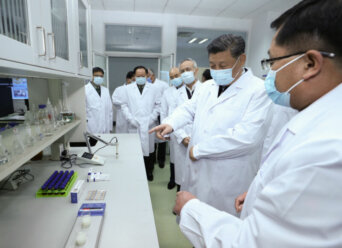- About
- Topics
- Picks
- Audio
- Story
- In-Depth
- Opinion
- News
- Donate
- Signup for our newsletterOur Editors' Best Picks.Send
Read, Debate: Engage.
| topic: | Health and Sanitation |
|---|---|
| editor: | Bob Koigi |
The world continues to face the devastating impacts of coronavirus in unprecedented ways, as nations grapple with overwhelmed health systems, crippling economies and decimated livelihoods.
Since the outbreak of the virus and throughout its vicious spread, the discovery of vaccines and the ongoing drug therapy trials, the pandemic has tested humanity’s mettle and has engendered increased xenophobia, discrimination, vaccine nationalism, vaccine passports and inequalities that have divided global citizens along country, racial and social status lines.
The last time the global community grappled with this kind of challenge was during World War II. Inspired by the need to heal from the catastrophic effects of the war, political leaders united in advancing the message of peace, enhanced security and solidarity.
It is therefore laudable and heartwarming that world leaders recently championed for a common approach in tackling COVID-19 and future pandemics by advocating for enactment of an international treaty that would guide nations in preparedness and response.
This call, while emphasising the need for international cooperation across the entire health system from research, distribution of medical facilities, data sharing and alert systems, has also mooted the idea of strengthening national, regional and global systems in order to have institutions that can withstand pandemics.
And rightly so. COVID-19 has amplified everything that is wrong with our health, political and social systems. While some nations continue to hoard vaccines, others, especially developing ones, are grappling with acute shortages.
Yet this virus has proven to us that nobody is safe until everyone is safe. No one country, institution or system can handle it alone. Now, political leaders across the globe should walk the talk and turn that call into action with tangible results. It is time to save humanity.
Image: Pramod Yadav.

